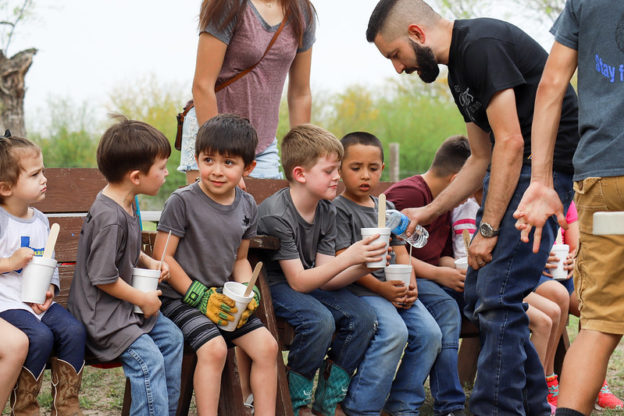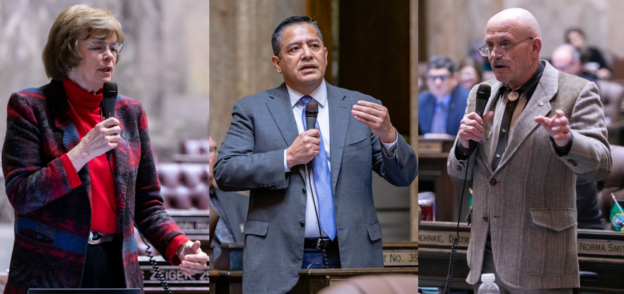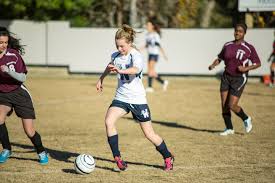More and more people tangentially connected with state government are finding out that they are subject to Gov. Jay Inslee’s recently announced vaccine mandate – even 4-H volunteers.
In a letter sent to volunteers, the Washington State University Extension, which oversees the 4-H youth agricultural program, wrote that 4-H volunteer leaders must also be fully vaccinated by Oct. 18 to continue to participate in any volunteer activities.
Agricultural leaders in the state Senate are worried what this policy will do to the program.
“It’s one thing for the state to mandate COVID vaccination requirements for state workers and education employees, but when this mandate is even imposed on 4-H volunteers, it makes you wonder where does this stop,” said Sen. Mark Schoesler, R-Ritzville. “The end result could be fewer people volunteering in 4-H, which would hurt the kids who participate, and it will ultimately hurt Washington agriculture.”
4-H is a more-than-century-old youth development nonprofit that provides programs focusing on science, technology, engineering and math (STEM), in addition to civic engagement and agriculture. The organization relies heavily on community volunteers, and the latest requirements could mean a sharp decrease in participation, a serious blow to the popular program.
“I’m hearing a great deal of concern from 4-H leaders around my district. Like other problems many businesses are seeing with hiring staff, this mandate will make it harder for this program to run effectively,” said Sen. Judy Warnick, R-Moses Lake. “Much of this program is conducted outside where safety protocols can be implemented without trampling on people’s conscience or medical decisions.”
The focus on youth during this time is greatly needed, says state Sen. Jim Honeyford, R-Sunnyside. “4-H is a valuable experience for young people already suffering setbacks from isolation and mental health challenges due to how the state has handled the pandemic. We shouldn’t be putting more obstacles in the way to their success,” Honeyford said.
While other states are working to boost vaccinations among their workforces, Washington remains an outlier with its heavy-handed approach.
“Our 4-H leaders have gone above and beyond to provide a safe environment for our kids during these unprecedented times and I have no doubt that they will continue to do so,” said Sen. Shelly Short, R-Addy. “We have seen that Oregon and California have provided alternatives to vaccine mandates; we should do that here! This mandate ignores individual choice, and I am concerned that we will lose valuable volunteers because of it. Our young people have suffered immeasurably during the last 18 months. Losing their 4-H leaders will only add to their burden.”











